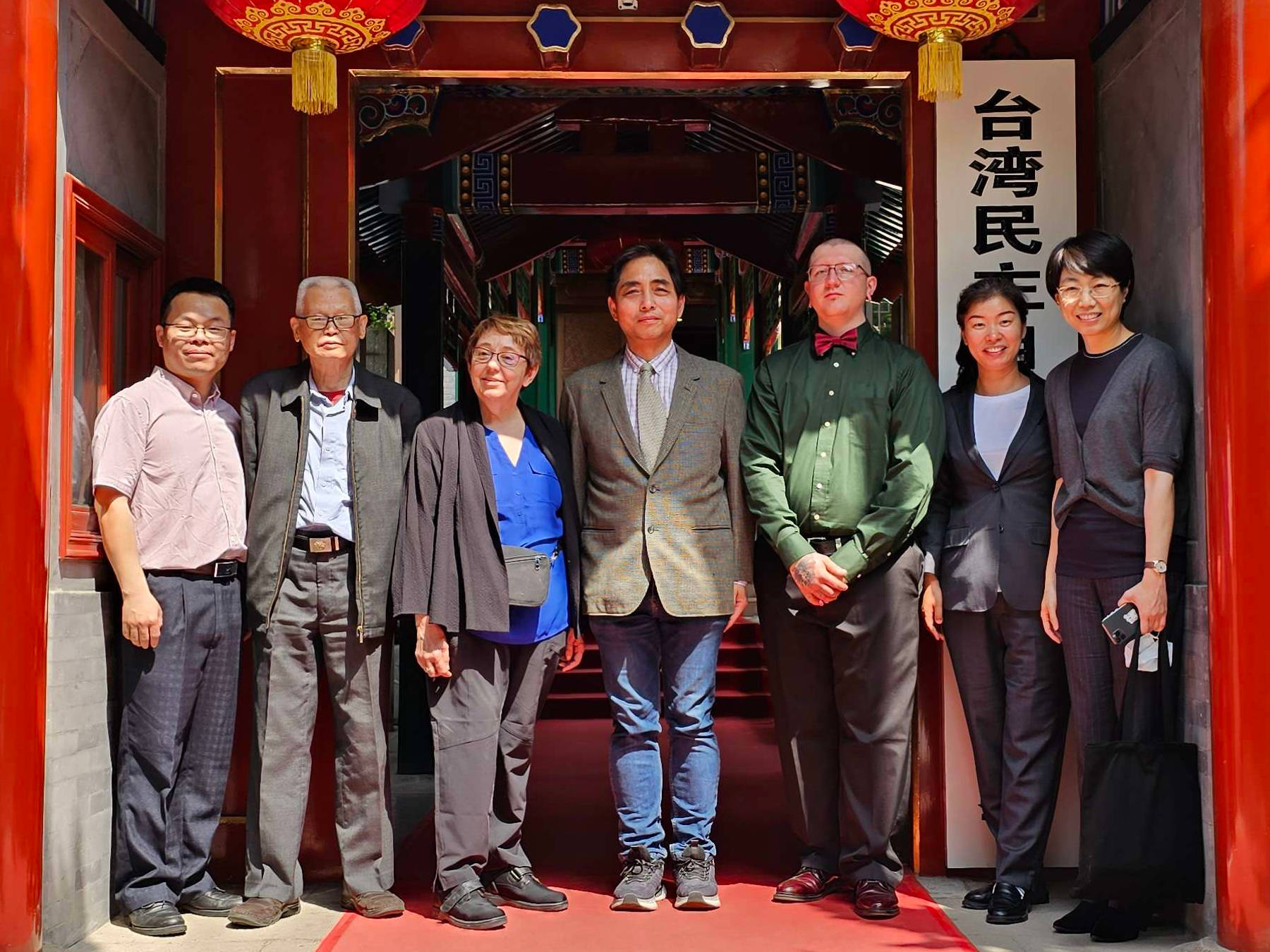

Beijing, China
Workers World Party and International Action Center delegates traveled to the People’s Republic of China in May as part of an educational and political exchange organized by the China-U.S. Solidarity Network. The purpose of the delegation was multifold: to conduct research that brings truth to expose the lies of the U.S. empire, as well as to strengthen international friendships and forge a more resilient global anti-imperialist movement. Among the many stops on this tour was a meeting in Beijing with representatives of the Taiwan Democratic Self-Government League (Taimeng).


Meeting between Taiwanese and U.S. delegates, May 14, 2023.
One of eight parties in the Chinese People’s Political Consultative Conference, a united front under the leadership of the Communist Party of China, Taimeng works alongside the CPC to formulate the government’s policy in regard to relations between the mainland and Taiwan.
Taimeng holds 13 seats in the National People’s Congress and three seats in the Standing Committee of the National People’s Congress. The League consists of members of Taiwanese descent and with connections to Taiwan residents. It supports the reunification of Taiwan with the People’s Republic of China mainland.
The meeting between the Taiwan Democratic Self-Government League and Workers World Party May 14 took place at a time when U.S.-China tensions are at an all-time high. Both parties exchanged friendly messages expressing a common interest in de-escalating the U.S.-led war drive against China, in which Taiwan is used as a pawn by U.S. imperialism.
The U.S. empire promotes Taiwan separatism, despite its stated agreement to the “One China” policy that supposedly forms the bedrock of U.S.-China relations. It simultaneously uses sanctions and other methods of economic warfare, in tandem with military encirclement and weapons imports, to turn the region into a powder keg.
Members of Taimeng brought the delegates from Workers World Party through a tour of their three-story exhibit, showcasing the history of their organization from its inception in 1947, with roots in the Taiwanese Communist Party, to the present day.
Beginning on Feb. 28, 1947, the Kuomintang-led government of Taiwan began massacring people who had become fed up with the brutal administration of the island. Taiwanese communists organized resistance to this KMT violence. Xie Xuehong, a key leader in the Taiwanese women’s movement and founding member of the Taiwanese Communist Party, created a force in Taichung dubbed the 27 Brigade, a communist-led guerilla unit comprising some thousands of fighters.
The violence of the KMT resulted in the deaths of tens of thousands of people. In the end, many left forces were violently suppressed and forced off the island. Surviving members of the Taiwanese Communist Party relocated to Hong Kong and formed the Taiwan Democratic Self-Government League. Two years later in 1949, Taimeng witnessed the victory of the communist forces on the mainland and participated in the birth of the People’s Republic of China.
As an ally in the United Front with the CPC, Taimeng works resolutely toward a united China and promotes policies that mutually benefit people on both sides of the Taiwan Strait. Su Hui, chairperson of the Taiwan Democratic Self-Government League’s Central Committee, said at a press conference in March: “With the word ‘Taiwan’ in our party’s name, one of our missions is to carry on Taiwan compatriots’ noble tradition of loving our nation and homeland, and try our best to realize the motherland’s reunification.”
The epic struggle of the Palestinian people against the full weight of U.S. imperialism and…
The following report comes from the Bronx Anti-War Coalition organizers on a protest held in…
In the Canadian federal elections held on April 28, the Liberals won with 169 seats…
The following is Part 2 of a talk given by the author to a meeting…
Boston Students, professors and workers are confronting the Trump administration’s fascist crackdown at universities across…
Philadelphia Within days of Swarthmore students reviving a pro-Palestinian encampment on April 30, police arrested…